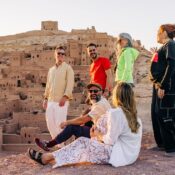The Beauty of Moroccan Mosques: Architecture, History, and Cultural Significance
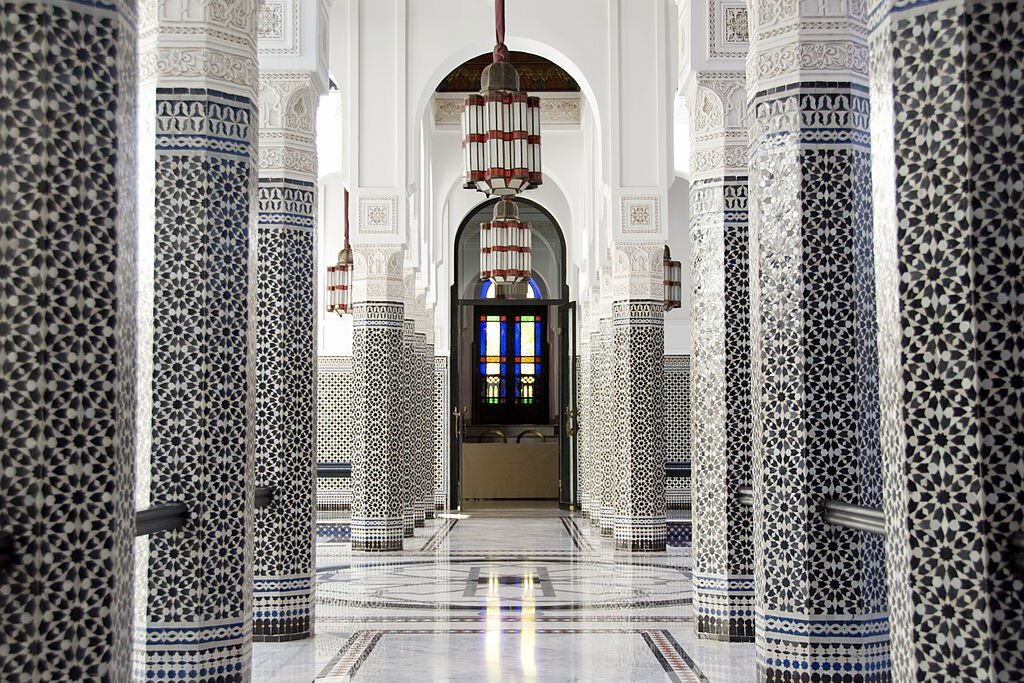
The Beauty of Moroccan Mosques: Architecture, History, and Cultural Significance
Introduction
Moroccan mosques, exemplifying architectural splendor, seamlessly integrate intricate designs, spiritual sanctity, and profound historical significance. These sacred structures not only stand as pillars of Islamic culture but also embody Morocco’s vibrant heritage and artistic mastery. Through their majestic presence, they symbolize a harmonious fusion of spirituality and craftsmanship, reflecting the nation’s deep-rooted cultural identity and commitment to preserving its rich history.
Architectural Splendor
Islamic Architectural Elements
Moroccan mosques exhibit distinctive Islamic architectural elements, characterized by intricate geometric patterns, ornate calligraphy, and elegant domes or minarets. These mosques often feature horseshoe arches, intricate tilework (zellige), and detailed carvings, showcasing the country’s exquisite craftsmanship.
Historical Significance
The Great Mosque of Kairouan
Moroccan mosque architecture finds its origins in the renowned Great Mosque of Kairouan in modern-day Tunisia. This influential Islamic masterpiece, boasting a distinctive hypostyle prayer hall and an iconic minaret, has profoundly shaped the design of mosques in Morocco and beyond. The intricate details of the Kairouan mosque, including its architectural layout and aesthetic elements, have served as a foundational blueprint, influencing the rich and diverse tapestry of Moroccan mosque architecture, showcasing a harmonious blend of cultural heritage and Islamic artistry.
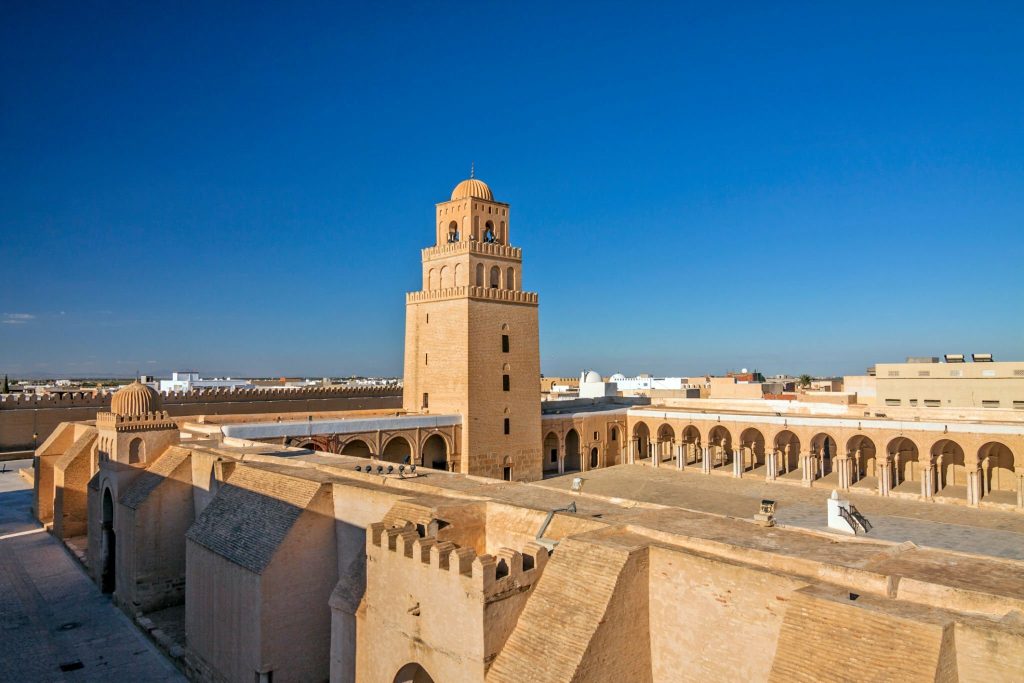
Moroccan Mosque Styles
The Koutoubia Mosque, Marrakech
The Koutoubia Mosque, an iconic symbol of Moroccan architecture in Marrakech, captivates with its majestic minaret, adorned with intricate carvings, and a harmonious, symmetrical design. This historical masterpiece not only showcases the aesthetic prowess of Moroccan craftsmanship but also serves as a cultural focal point, drawing admiration from both locals and tourists who are enchanted by its timeless beauty and profound historical importance.
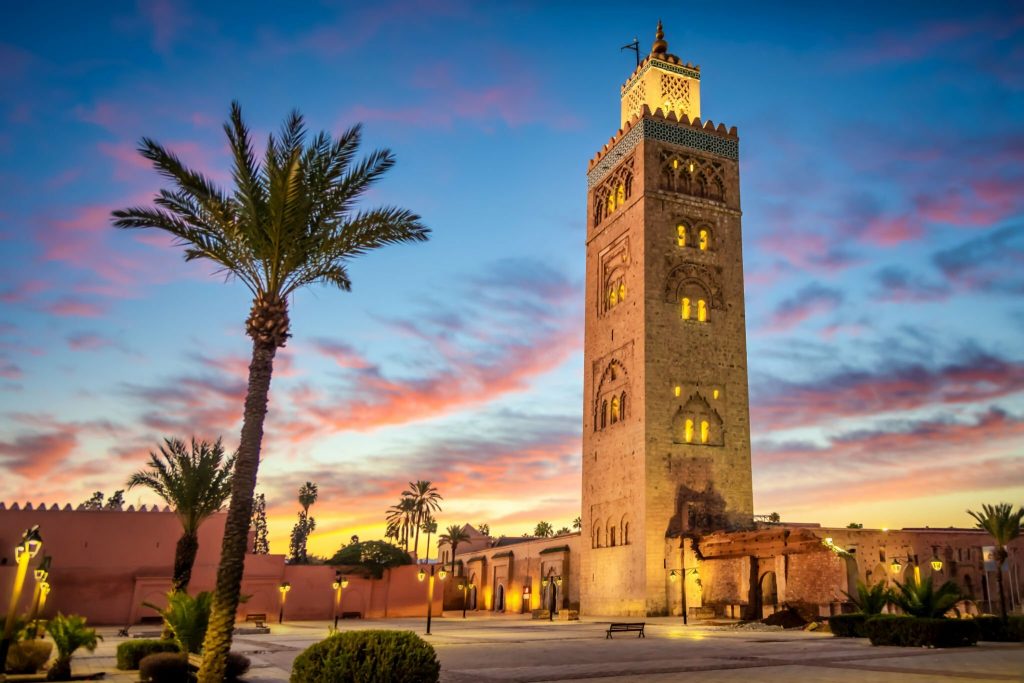
The Hassan II Mosque, Casablanca
The majestic Hassan II Mosque in Casablanca epitomizes the brilliance of modern Moroccan mosque design. Renowned for its intricate artistry, the mosque boasts a striking minaret and a unique feature—a transparent floor that unveils the mesmerizing expanse of the ocean beneath. This architectural marvel not only pays homage to traditional Islamic aesthetics but also stands as a symbol of innovation and elegance in contemporary Islamic architecture, captivating visitors with its harmonious blend of cultural heritage and modern ingenuity.
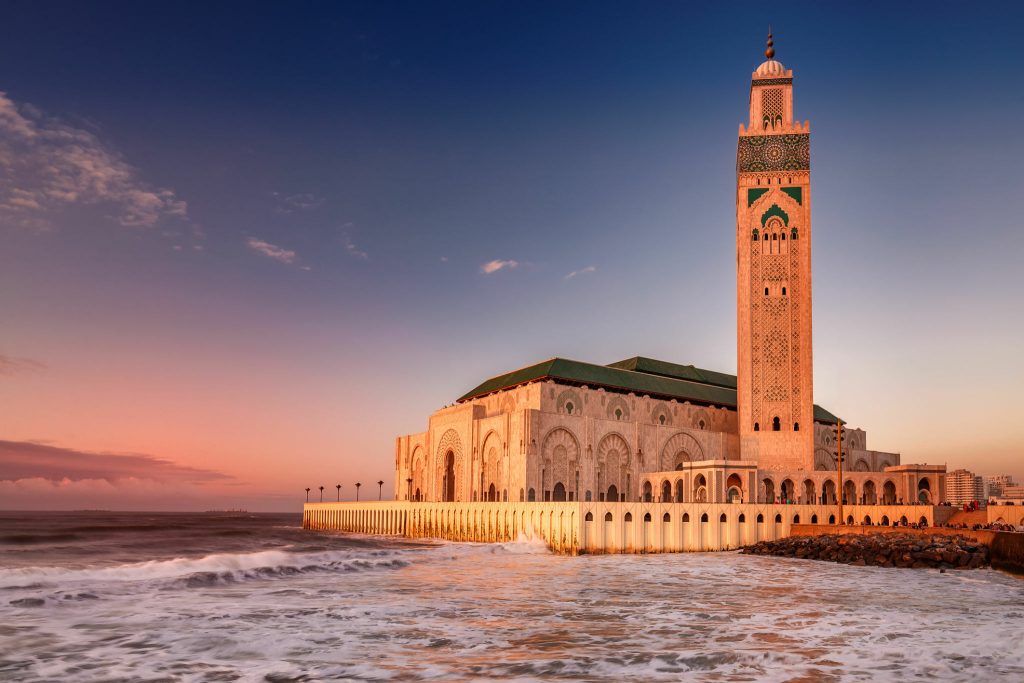
Cultural and Spiritual Importance
Role in Moroccan Society
Mosques in Morocco, beyond being sacred spaces for prayer, serve as vibrant hubs for communal activities, education, and cultural enrichment. These architectural marvels embody the essence of unity, spirituality, and unwavering devotion, holding a central position in Moroccan society. With their intricate designs and rich history, these mosques stand as symbols of cultural heritage, fostering a sense of community, intellectual growth, and spiritual enlightenment among the people of Morocco.
Preservation and Reverence
Conservation Efforts
Morocco places great emphasis on preserving its mosque heritage. Restoration projects aim to maintain the structural integrity and historical authenticity of these architectural treasures, ensuring their legacy for future generations.
Conclusion
Moroccan mosques, with their architectural grandeur and spiritual significance, stand as enduring symbols of the country’s rich cultural heritage. From ancient influences to modern innovations, these sacred spaces continue to inspire awe, reverence, and a deep sense of cultural pride among Moroccans and visitors alike.
FAQs
- Are non-Muslims allowed to visit Moroccan mosques? While non-Muslims might not be allowed to enter prayer halls during prayer times, many mosques in Morocco permit non-Muslims to visit at certain times and areas, respecting the sanctity of prayer times.
- Are there specific dress codes or etiquettes to follow when visiting Moroccan mosques? Visitors are encouraged to dress modestly, remove shoes before entering, and show respect by maintaining a quiet and reverent demeanor.
- Do mosques in Morocco offer guided tours for visitors? Some mosques do offer guided tours conducted by knowledgeable guides, providing insights into the mosque’s history, architecture, and cultural significance.
- What role do mosques play in Moroccan festivals and cultural events? Mosques often serve as focal points during religious festivals and cultural events, hosting special prayers, lectures, and communal gatherings.
All Categories
- Actividades en Marruecos
- Adventure
- Aventura
- blog
- blog
- Camping salvaje
- City Tours
- country tours
- Desert tours
- Estilo de vida
- Excursiones de un día a Marrakech
- Life Style
- Marrakech Day Trips
- Morocco activities
- Morocoo
- Rutas por el desierto
- Sin categorizar
- viajes por el país
- Visitas por la ciudad
- Wild Camping

